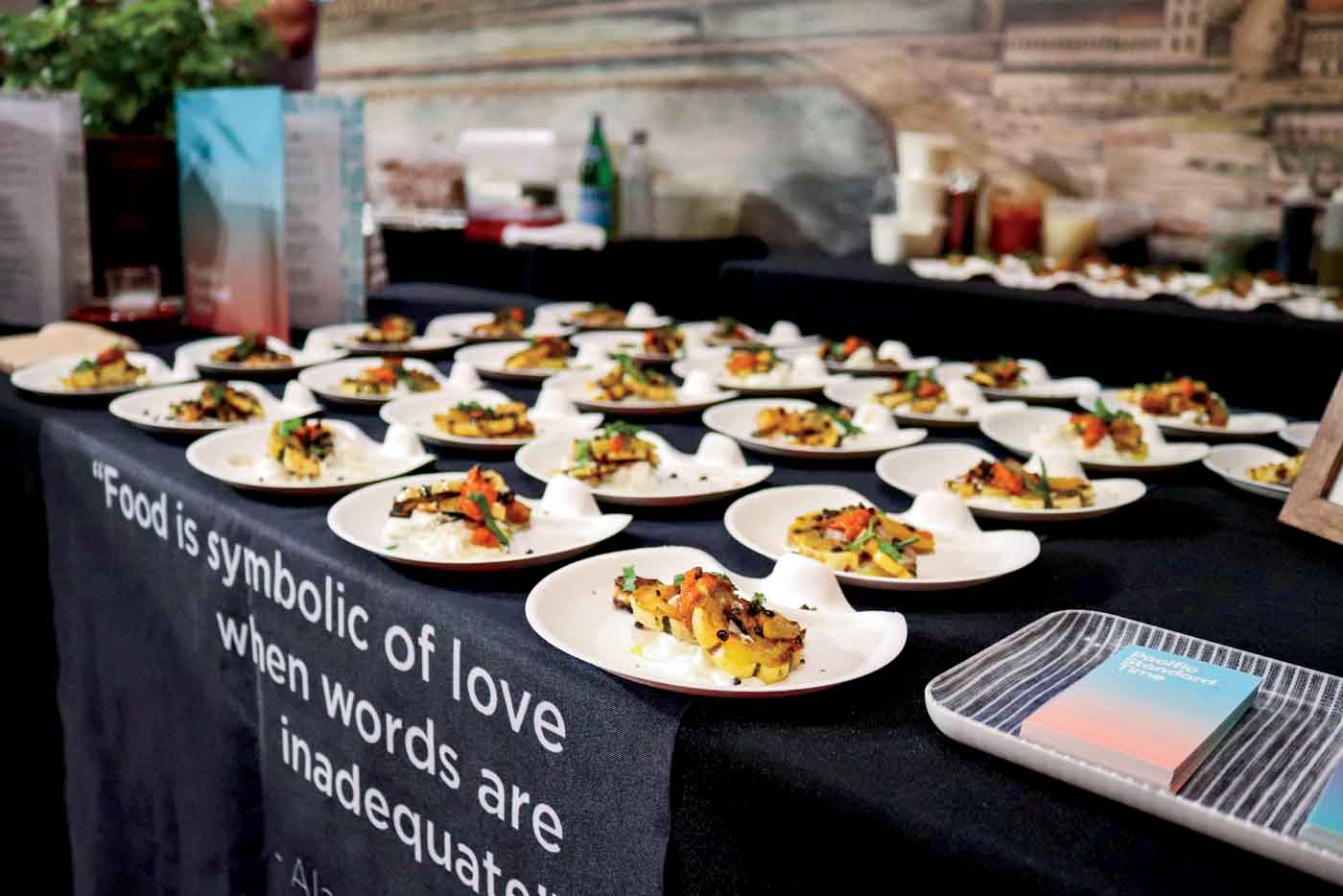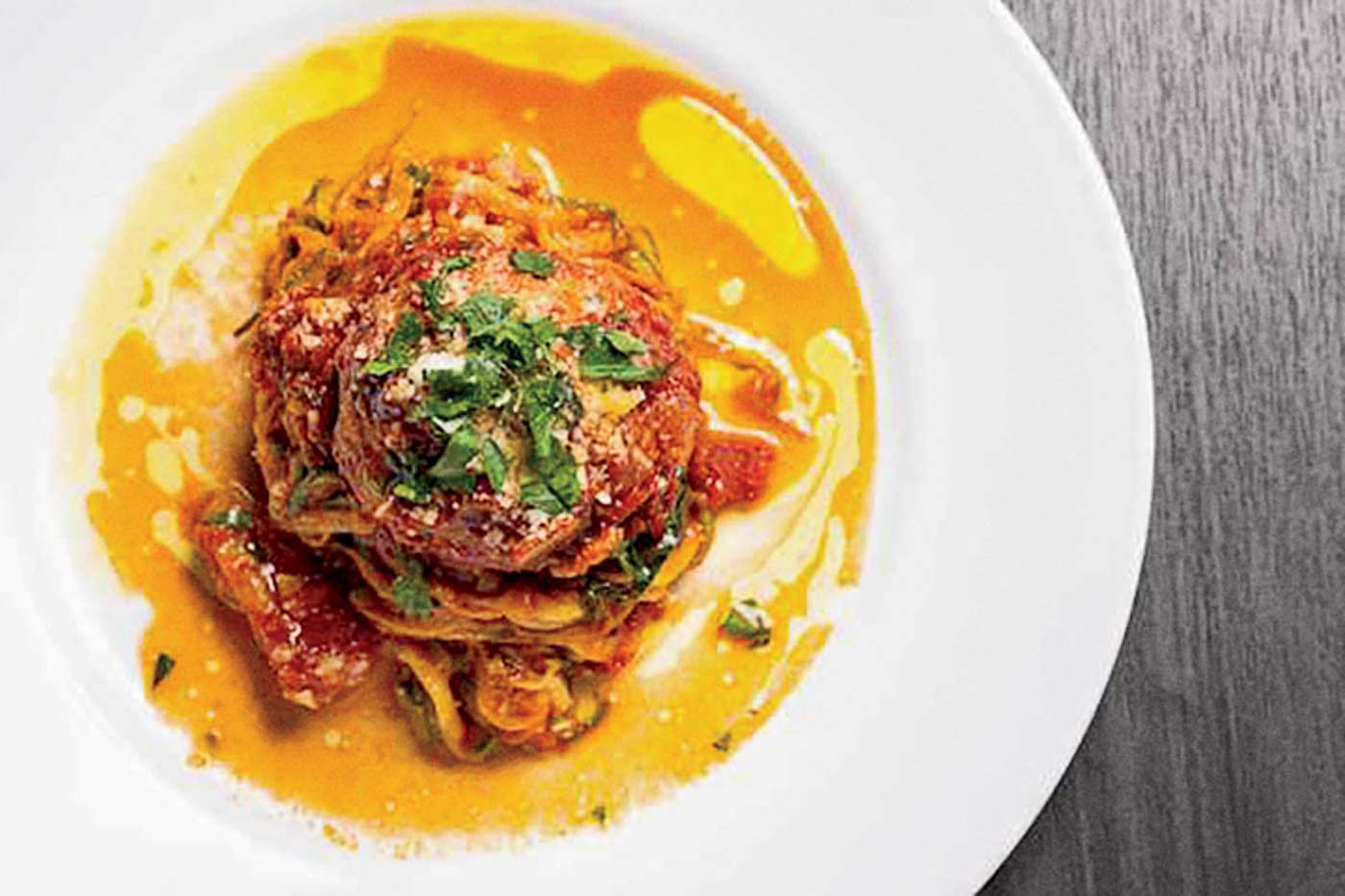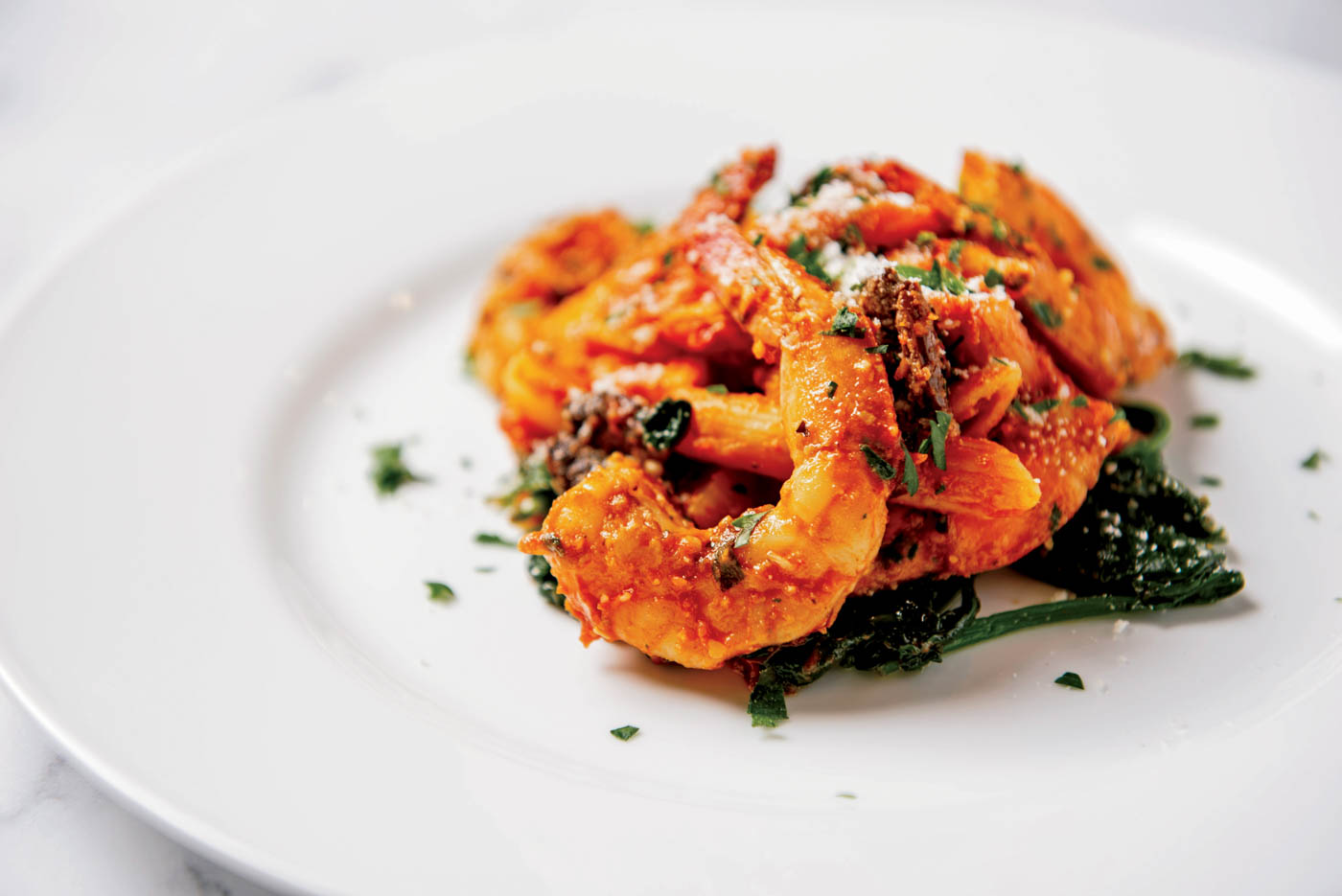BON APPÉTIT!
By Thomas Connors
PHOTOGRAPHY BY KATRINA WITTKAMP
STYLING BY THERESA DEMARIA
HAIR & MAKEUP BY MAKEUP BY EMILY ANN
Culinary Care founder Courtney Johnson, wearing L’AGENCE, Neiman Marcus Northbrook
By Thomas Connors
PHOTOGRAPHY BY KATRINA WITTKAMP
STYLING BY THERESA DEMARIA
HAIR & MAKEUP BY MAKEUP BY EMILY ANN
Culinary Care founder Courtney Johnson, wearing L’AGENCE, Neiman Marcus Northbrook

It’s safe to say that at 23, most of us were still figuring out where to begin our lives. Courtney Johnson was no different at that age. A few years out of college, she’d worked as a brand manager and public relations associate. Yet, while her career path was far from certain, she was already on her way to making a difference in people’s lives. In 2006, while a student at New Trier, Johnson’s father was diagnosed with stage IV lung cancer. “During his treatment,” she recalls, “friends and family brought meals that allowed us to savor our time together and gave us one less thing we had to worry about. Those meals gave us moments of joy amidst all the stress, and that stuck with me.” She lost her father seven months later, and after graduating from the University of Arizona in 2011, she began to seek a way to honor her dad.
“I needed to do something to keep his memory alive and to find some sense of purpose, and my mind kept going back to those meals. I searched for ways I could volunteer to bring meals to other families but was surprised when I couldn’t find anything. It sparked the questions—are there people who don’t have a meal to look forward to? Is this a problem that needs to be solved?”


In 2013, after several months of research and brainstorming, Johnson founded Culinary Care, a nonprofit that delivers free meals and connection to cancer patients. At first, she started by taking meals to folks at home, but time and distance made it difficult to meet demand. In one case, she was driving three hours to deliver a meal. “We knew this wasn’t going to be sustainable if we wanted to grow,” says Johnson. “Then a patient’s mother, who had quit her day job so she could be with her son during treatment, asked if we could deliver to the cancer center because ‘my son and I are here all day, and we’re starving.’”
Checking in with other Culinary Care families, Johnson learned that most patients spend four to 12 hours at the hospital on treatment days and that they are expected to bring a meal from home or buy one onsite. “The reality is,” notes Johnson, “that most people aren’t physically or financially capable of either of those options, so they’re going hungry.”
As all her referrals came from cancer centers, Johnson pivoted and arranged to deliver meals directly to a range of medical institutions, including Northwestern Memorial Hospital, Rush University Medical Center, and UChicago Medicine. “Healthcare is a complex space, but cancer centers have embraced us,” relates Johnson. “We are very diligent and intentional about how we work with them. It must be a true partnership for our mission to work, and we’re grateful for how committed the staff is to making sure their patients get access to this program.”


Now a team of 10, Culinary Care has delivered more than 53,000 free meals to more than 10,000 patients and caregivers, with restaurants such as Maggiano’s Little Italy, Wildfire, Doc B’s, and Summer House Santa Monica supporting its efforts. In 2024, Culinary Care expanded to Dallas with a goal of being in four additional cities by the end of 2029.
“One of the most surprising things we’ve learned,” shares Johnson, “is that malnutrition is the direct cause of one in five cancer deaths each year. It is a complex problem that meals alone can’t treat, but we know early intervention and consuming nutrient-dense foods help. We work closely with cancer centers to get patients into our program from the very first day of treatment, and 75 percent of our patients report that our meals help them overcome loss of appetite, a common side effect of treatment that can lead to skipped meals. Proper nutrition helps patients better tolerate treatment and supports recovery. Psychologically, having a meal you actually want to eat restores a sense of normalcy, happiness, and dignity, which is equally important. Ninety-five percent of our patients report we helped increase their sense of community, which can impact outcomes by as much as 25 percent.”
Culinary Care is now on its way to having its first-ever $1 million fundraising year, a goal Johnson hopes to realize at the organization’s November 13th benefit, Gourmand Gala. Held at Union Station, the event features the talents of 35 of Chicago’s finest chefs, each serving a signature dish. “I would love to see our gala hit $500,000 this year, which would be our biggest gala to date and would help us surpass our $1 million goal,” says Johnson. “Every year, demand grows by at least 20 percent, and we’ve always been able to meet it. Hitting this goal can help us serve 1,500 families in 2026. This is a generous community, so I’m not afraid of the challenge.”
For more information and to join the organization’s efforts to nourish cancer patients, visit culinarycare.org.
Sign Up for the JWC Media Email